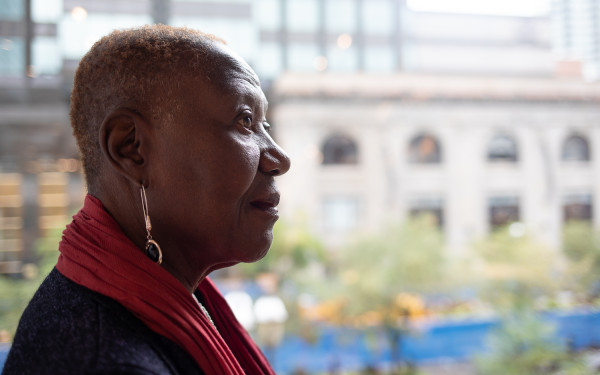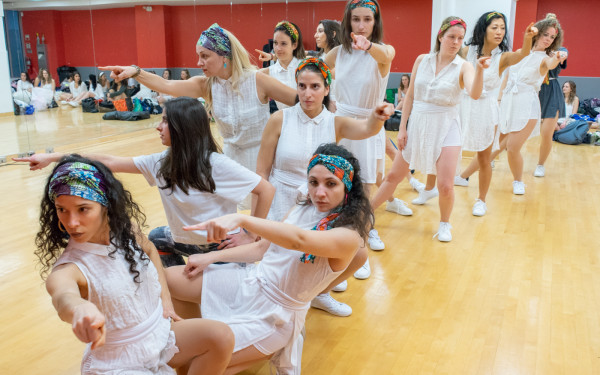A Legacy of Hope
Martin Luther King III Speaks at Concordia
Civil rights activist and proponent of non-violence Martin Luther King Jr. dreamed of eradicating the “three evils” of poverty, racism and militarism while he was alive. Today, his son Martin Luther King III wonders what he would think of the current state of the world.
King expressed his concerns about violence before a Concordia audience last Thursday in a Black History Month presentation called “My Father’s Dream, My Legacy.”
Indicating rising gun violence, poverty, homelessness and anti-immigrant attitudes as some of the issues currently troubling humanity, King said that a culture of non-violence is needed now more than ever if humans are ever going to be able to live together.
“Homicides continue to increase. Some of it may revolve around a very bad economy, but some of it is the culture of violence that is promoted, for we live in a world that promotes violence,” he said, blaming violent movies, video games and news media for contributing to the problem.
“America should really be prepared to engage in serious non-violent conflict resolution exposure or training,” said King, referring to the recent tragedy in Tucson, Arizona where congresswoman Gabrielle Giffords was shot along with 18 others two days before Martin Luther King Jr. Day.
King said that human conflict needs to be resolved using reason, rather than resorting to lower animalistic means of survival.
But if humanity is going to progress, he said, we must embrace an “unselfish love” for our fellow humans.
It was this kind of love, said King, that allowed him to not only get through the assassination of his father, but also the mysterious drowning of his uncle and the shooting of his grandmother during a church service.
“It would have been easy for me to embrace hatred,” he said. “It’s so easy to embrace hostility, to carry around anger and frustration. I could have legitimately hated all white folk and black folk. But what I am thankful for is the spirit of forgiveness because I learned to dislike the evil act, but still love the individual.
“It’s not easy, but it’s a great alternative to always presenting oneself in an angry fashion. It’s really redemptive to be able to share love and not hate. As a society, we have to learn how to forgive,” he continued.
As part of the Martin Luther King Centre, King spreads the “blueprint” of non-violence around the world to places like Bosnia and Sri Lanka so that people can learn how to live together without destroying one another.
His philosophy is that every person should be ashamed to die before they have won a victory for humanity, no matter how small.
“Look at the number of people who are homeless,” he said. “We don’t seem to be embarrassed about it with all the wealth and the opulence that exists around us.
“There’s a population of people that are suffering,” he continued. “And yet we have enough resources for everyone to have decent education, decent housing, a decent job, health-care and justice. I didn’t say that everyone would be rich or wealthy, but everyone should be able to have the basics.”
Despite the huge challenges posed by violence, greed and intolerance, King said that it is important to maintain a spirit of optimism to successfully eradicate these evils.
“I believe there will be a day when this archaic, barbaric behaviour that humankind is engaged in will be looked upon as something of the past,” he said. “Today some have almost accepted it as the norm. But we can never accept mediocrity. We have to find a way to soar like eagles, even if we are alone. We have to have a mentality of finding ways to be the best that we can be.”
This article originally appeared in Volume 31, Issue 23, published February 15, 2011.

_1_900_703_90.jpg)





__600_375_s_c1.png)